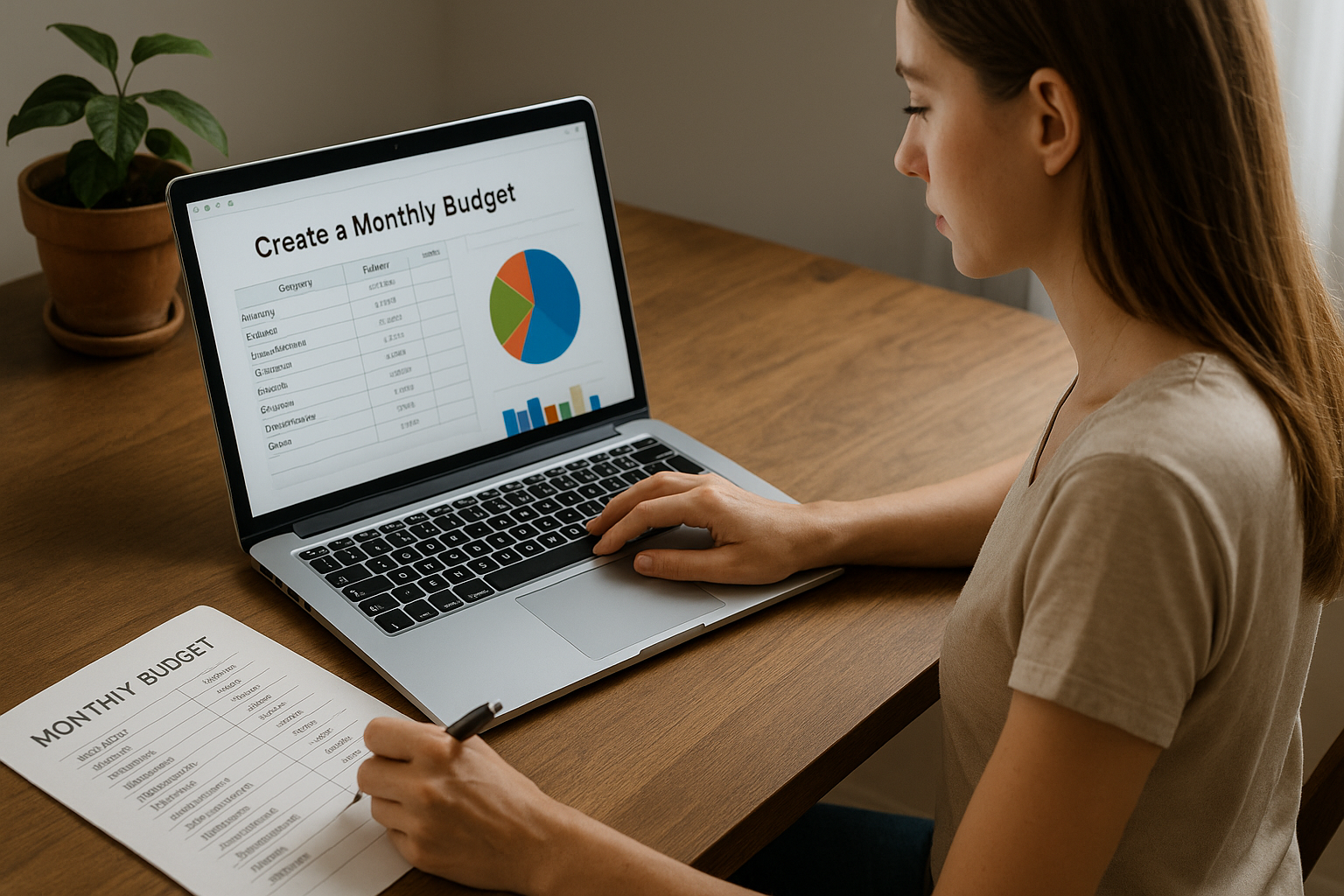Creating a monthly budget is one of the most practical steps you can take to gain control over your finances. Rather than feeling like a restriction, a well-planned budget empowers you to make better financial decisions, avoid debt, and build a strong foundation for your future. In this guide, you’ll learn how to create an effective budget that works for your lifestyle and goals.
Understand Your Income
Before you can plan your spending, you need to know exactly how much money you have coming in each month. This is your net income — your earnings after taxes and deductions. If you have multiple income sources (salary, freelance gigs, side hustles), include all of them.
Write down:
- Your total monthly income
- Any irregular earnings (and estimate conservatively)
Knowing your real income prevents you from budgeting more than you can afford.
List All Monthly Expenses
Next, identify where your money goes. Start by listing fixed expenses — those that stay the same every month:
- Rent or mortgage
- Utility bills
- Loan payments
- Insurance
- Subscriptions
Then, list variable expenses — which may change month to month:
- Groceries
- Gas
- Dining out
- Entertainment
- Shopping
Don’t forget to include non-monthly expenses like annual insurance premiums or vehicle maintenance. Estimate these and divide them into monthly amounts to save gradually.
Categorize Your Spending
To get a clear overview, group your expenses into categories. Common categories include:
- Housing
- Transportation
- Food
- Utilities
- Savings and Investments
- Debt Repayment
- Entertainment and Leisure
- Healthcare
- Education
This helps you visualize where your money is going and find areas to adjust.
Choose a Budgeting Method
Different methods work for different people. Here are a few of the most effective ones:
1. 50/30/20 Rule
- 50% for needs (rent, bills, groceries)
- 30% for wants (eating out, entertainment)
- 20% for savings and debt repayment
2. Zero-Based Budget
Every dollar has a purpose. Income minus expenses equals zero. It’s great for people who want detailed control.
3. Envelope System
Use physical envelopes (or digital versions) to allocate a set amount for each category. When the money’s gone, you stop spending in that category.
Pick the method that matches your personality and goals.
Set Financial Goals
Your budget should support your goals. Whether it’s building an emergency fund, paying off credit cards, or saving for a vacation, list your priorities.
Example goals:
- Save $200/month for emergencies
- Pay off $500 in debt this quarter
- Set aside $100/month for a future trip
Having clear goals gives your budget purpose and keeps you motivated.
Track Your Spending
Tracking spending ensures you stay within your budget and helps you make adjustments if necessary. Use tools like:
- Budgeting apps (e.g., Mint, YNAB, Goodbudget)
- Spreadsheets (Excel or Google Sheets)
- Notebooks or bullet journals
Check your spending weekly to avoid surprises at the end of the month.
Adjust and Review Monthly
Your first budget won’t be perfect — and that’s okay. Life changes, and so should your budget. Each month, review:
- Did you stick to your budget?
- Where did you overspend?
- What categories need more or less money?
Use this information to improve next month’s budget. Over time, it becomes easier and more accurate.
Include Fun Money
If your budget feels too strict, you’re more likely to give up. That’s why it’s important to include some money for fun — guilt-free.
Set a limit (e.g., $50–$100) for dining out, hobbies, or spontaneous purchases. Budgeting for enjoyment keeps your plan sustainable.
Automate What You Can
Simplify your life by automating:
- Bill payments
- Savings transfers
- Credit card payments
- Investment contributions
Automation prevents missed payments and builds good habits effortlessly.
Tips to Stay Consistent
- Set a reminder to review your budget each month
- Use visual trackers to monitor progress
- Celebrate small wins (like sticking to your grocery budget)
- Involve your partner or family to stay accountable
Consistency is more important than perfection. Even if you have an “off” month, just keep going.
A Budget Is a Tool, Not a Cage
Many people fear budgeting because they associate it with restriction. But in reality, a budget is freedom — it gives you control, reduces stress, and helps you reach goals faster. Done right, it becomes a tool to design the life you truly want.
